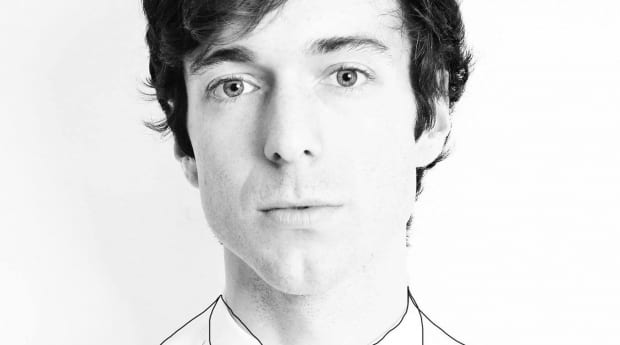(This article from our archives was originally published on Nov 19, 2015. Late Company returns to the Lower Mainland for a short run, first in Coquitlam and then in Vancouver, opening March 29, 2016.)
The last time we talked to Jordan Tannahill about Late Company, the Canadian theatre wunderkind sounded pretty fucking pissed. In discussing his play loosely based on Ottawa teen Jamie Hubley’s suicide, he delivered a scathing critique of a group of Conservative MPs twisting the tragedy into an opportunity for self-promotion. Unfolding over a single evening, the show looks at two families unexpectedly drawn together after one of their sons takes his life due to anti-gay bullying.
As the team revs up for the new Toronto production and a tour of Ontario (and now two stops in Vancouver and Coquitlam), Daily Xtra caught up with Tannahill to ask how the play is holding up, if he’s as angry as he was when he wrote it and whether theatre truly has the power to change the world.
Daily Xtra: You originally wrote Late Company in 2012. How is it holding up three years later in terms of the issues it addresses?
Jordan Tannahill: Sadly, I think it’s just as relevant as it was two or three years ago, particularly in how queer identities are expressed and scrutinized over the internet. But for me the play is about more than gay suicide. I see it as a meditation on collective culpability and the fallacy of closure.
Are you still as angry about this issue as you were the last time we talked to you?
Absolutely. In the so-called Canadian liberal middle class there’s a lot of lip service paid to topics like gay rights and bullying. But how many of those individuals would still encourage their teenage sons not to wear lipstick and eyeshadow to school or would feel uncomfortable with them expressing overtly flamboyant or effeminate behaviour? There’s still a very narrow, normative window of acceptability that queers need to fit into to be deemed well-socialized, team players.
Being totally honest with yourself, do you really think theatre has the power to affect social issues?
I think in very rare instances, it’s affected discernible change on a mass, societal level. More often than not, I feel like theatre’s socio-political value comes from giving discursive tools to an audience to address an idea or dynamic that already exists within the collective consciousness, like Arthur Miller equating the Salem witch trials with McCarthyism in The Crucible. I’ve obviously never accomplished anything on that scale, but last week I got an email from a teacher who assigned a monologue from Concord Floral to a student of hers who’d been really struggling, missing class and depressed. I guess something about the monologue really resonated with her because, according to her teacher, she really invested in it and then amazed her classmates when she performed it in front of them. Apparently that experience marked something of a turning point for her. I can’t imagine it was the monologue alone that was responsible but in some small way it contributed to something positive and maybe even transformative in that student’s life. It’s not world changing, but in that micro way it makes me believe that theatre has the power to make difference.
Late Company
March 29–April 2, 2016
Evergreen Cultural Centre, 1205 Pinetree Way, Coquitlam
evergreenculturalcentre.ca
April 5–9, 2016
The Cultch, 1895 Venables St, Vancouver
thecultch.com


 Why you can trust Xtra
Why you can trust Xtra


